Translation review: [Anxious-He] Kamisama Hajimemashita 01 This entry was posted by Vale.
Nanami becomes a god in Anxious Helium’s translation as well.
The lyrics’ translation is a bit too literal, but there wasn’t anything really bad.
This is just… whoa. It caught me off guard. This is something I’ve never seen before, but it’s a nice thing. Definitely a better option than littering the episode with annoying translation notes.
The script feels like the people working on it enjoyed it a lot. It’s well done.
These subs actually make the show more fun. Just how it’s meant to be done.
They sure like to start lines with ellipses.
I think it’s the other way around. He doesn’t want Tomoe to stop them.
The ending’s fine too.
Conclusion: Great
This script really feels like it’s made with lots of love. It’s fun to read and I don’t have much to complain about the translation either. With both songs done, this is clearly the most superior release for the show. Too bad it’s not the fastest too.

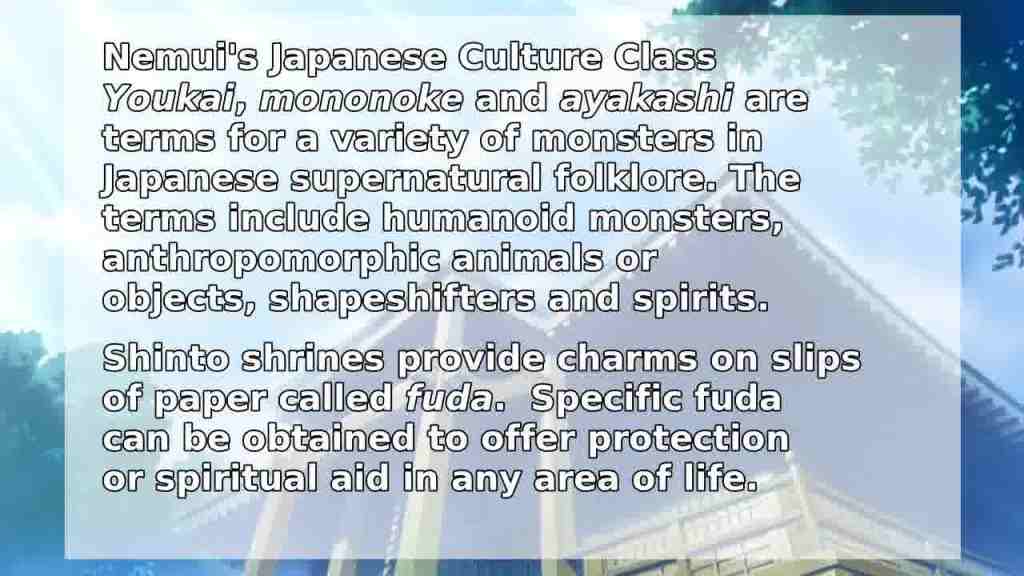
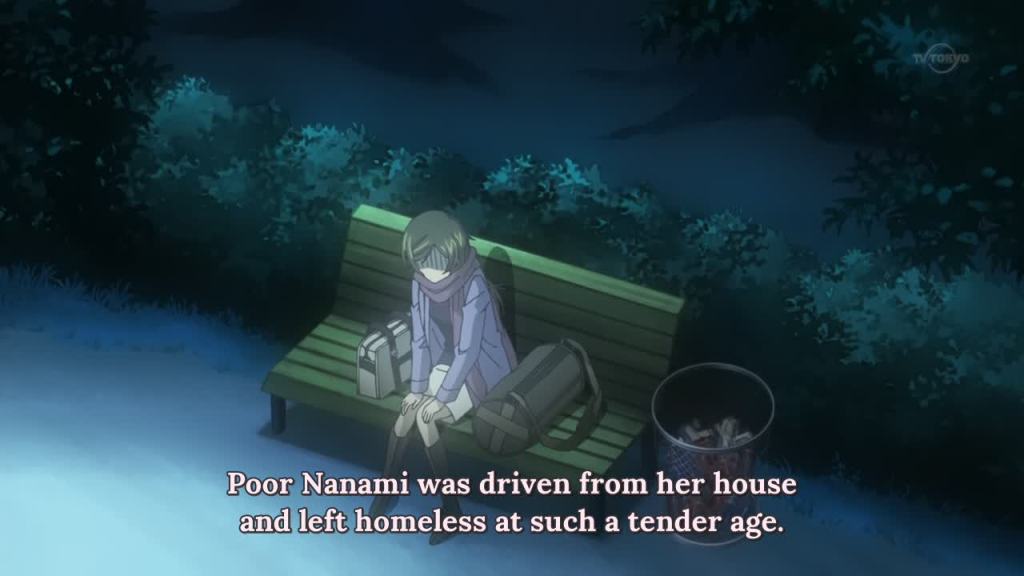
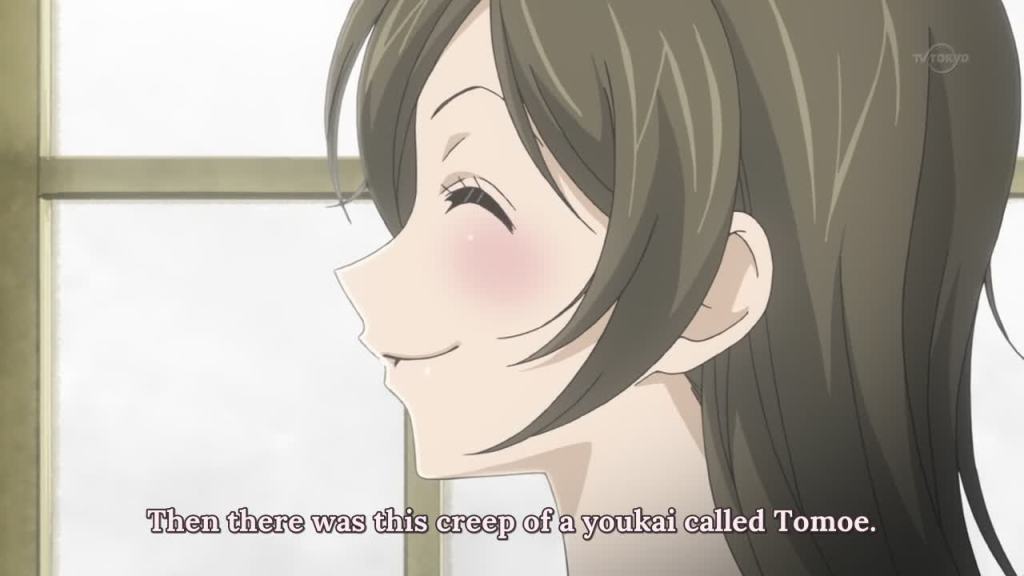
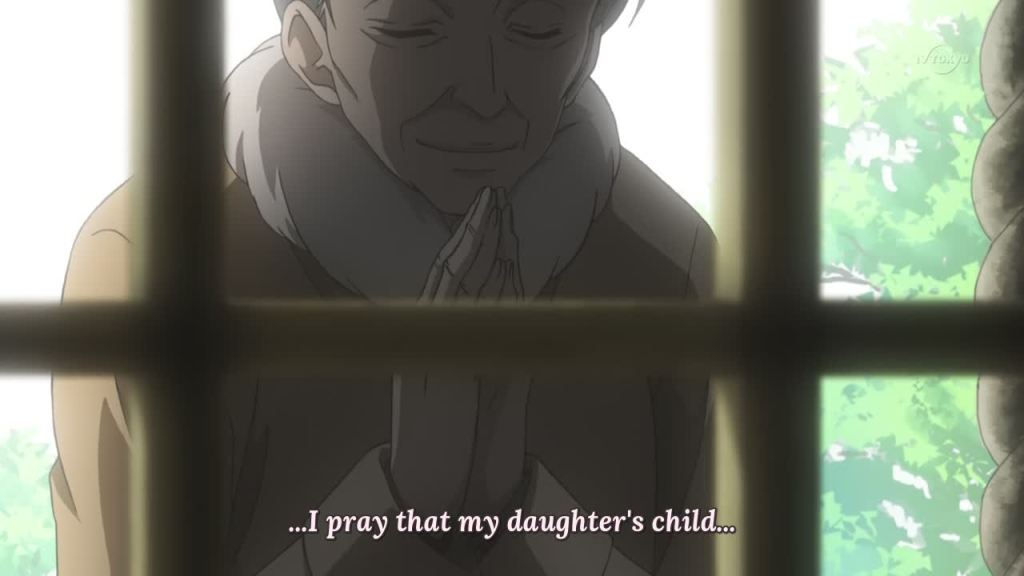
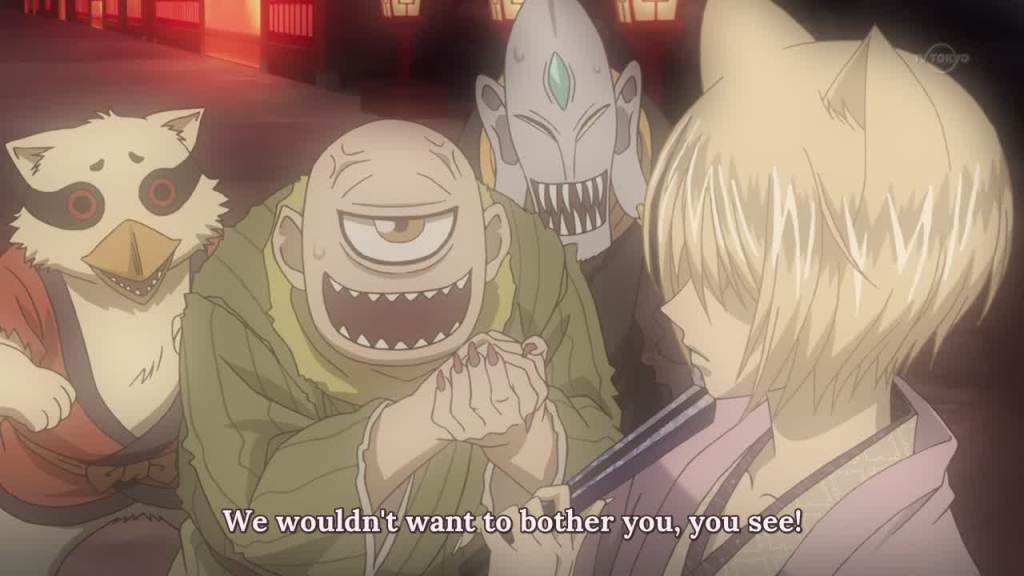
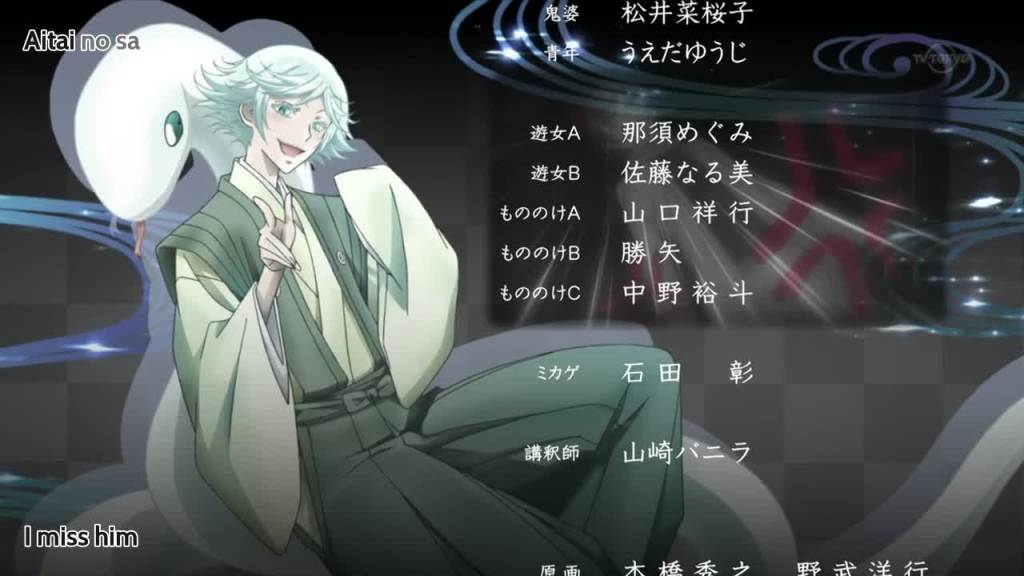
Almost all youkai shows I’ve seen so far had TL Notes like these. I especially remember Shinsen-Subs’ Rental Magica – that had some very elaborative notes at the end of almost each episode. Personally, I like this kind of stuff.
You only need TL notes when you don’t translate words.
Just a thought.
Thanks for the review Vale. It was a fun show to work on. Probably more fun for the translator, but I think we all enjoyed it.
I’m glad you enjoyed the release. Here’s the TL’s 2c:
TL notes are not normally my thing. Normally I just make each episode self-contained and add any cultural discussion to the release post. Then again, I try to consider each case on its own merits. With this show I had a few considerations I don’t necessarily have for other shows:
* The source material already has an English-speaking fanbase. Whatever my own opinions are, I have to consider consistency with the story as the fans know it (within reasonable limits). (Admittedly, I don’t actually have the English translation of the manga, though, which makes this a bit harder.)
* The show is heavily about Japanese culture. Generally it’s correct to just translate “youkai” as “monster”, but “youkai” can be a term in English for Japanese monsters, kind of like how “taiko” is the English term for what the Japanese call 和太鼓.
* In other shows, “fuda” would be a one-off, and a translation like “fortune slip” or “charm” would work in context to get the point across. However, it’s a different story when I’m trying to come up with terminology that I can stick with whatever the show throws at me. (I confess, it’s kind of handy for TLing that “fuda” is only four characters.)
The staff at Evetaku did a similar TL note thing for their Inu x Boku release, and I thought that worked out well. So, cred to them (even if they didn’t invent the idea).
To give an honest picture of what these subs are like, that’s four words in the initial TL note, for a show with Japanese supernatural terminology *all the way through*. Also, lol to peeaivo for calling it “Nemui’s Japanese Culture Class” =_=.
About the writing style, it’s only occasionally that I’ll really dress up the original script (“Tomoe will flying kick me as soon as he sees me” becoming “Tomoe will welcome me home with a flying kick” was one example). Usually the phrasing is intended to more accurately reflect the meaning and nuance of the dialogue than a literal translation done with a dictionary and grammar book. I don’t care if that concept makes the heads of the “literal is better” crew explode.
Two responses to your comments:
The line that starts with an ellipsis is a continuation of a previous line that ends with an ellipsis. It’s pretty much a religious war about exactly how to punctuate ellipses, but whatever your own stance, this release rolls with that style.
And, yep, that line about bothering was in fact 邪魔しないで欲しい, not お邪魔にならないように.
In my opinion ellipses at the start of the sentence are only valid if someone is continuing a sentence broken off.
I prefer more liberal translations. Literal tends to sound unnatural and stiff.
> In my opinion ellipses at the start of the sentence are only valid if someone is continuing a sentence broken off.
I agree, and that was what was happening in the example you highlighted.
> I prefer more liberal translations. Literal tends to sound unnatural and stiff.
I think you’re getting caught up in the false dichotomy started by clueless weeaboos and the equally clueless idiots who try to be smart by just taking the opposite stance.
Inappropriately literal subs sound off for a good reason: they’re not accurate. There’s a hell of a lot more to a language than just logical syntax and dictionary definitions.
Making stuff up doesn’t solve the problem, either. Individual lines might sound better, but the overall plot and character development suffers. Sure, this doesn’t matter much in shows with very little plot or character development to begin with, but factual accuracy doesn’t matter much in those shows, either.
A third option is to do your best to come up with an English expression that clearly carries across what the Japanese is trying to say, without caring in the slightest if it’s “literal enough” or “liberal enough”. You can probably guess this is the approach I try to take. Seriously, most of what I hear about literal vs liberal is just an ideological red herring.
>A third option is to do your best to come up with an English expression that clearly carries across what the Japanese is trying to say
Yeah, but most people can’t do that without using the same words the Japanese does.
>Making stuff up doesn’t solve the problem, either.
I thought you were against this whole false dichotomy? Calling liberal translations “making stuff up” isn’t helping either.
Sadly they dropped it :/ , I guess I just have to go with Anime Koi for now.
Watch Funimation’s release.